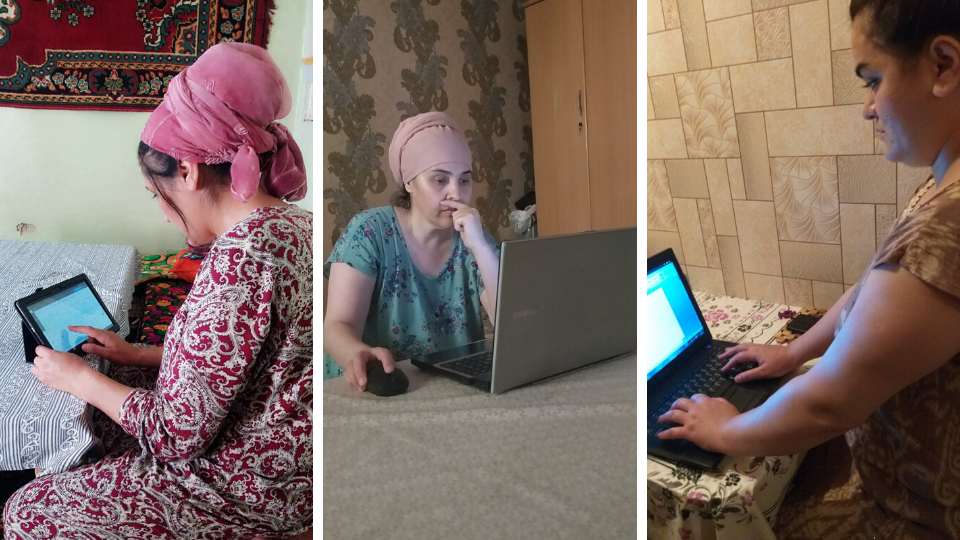Turning to technology to connect women living with HIV during COVID-19 in Tajikistan
Date:

As the devastating COVID-19 crisis unfolds worldwide, in Tajikistan peer counsellors are turning to technology to reach out to women living with HIV, who face particular risks and vulnerabilities.
UN Women sparked the creation of a virtual network of peer counsellors, who serve as role models, demonstrate empathy with network members’ concerns, and provide trusted information on COVID-19 and beyond. To date, the group consists of 10 members, eight of them have been trained in psychosocial support and peer-counseling. Peer counsellors are respected network members, have a positive can-do attitude, and are willing to share their experience with their peers. Their interpersonal and communication skills as well as their ability to motivate others are crucial in individual and group consultations.
A new Viber group enables members to post questions or facts as a resource for other members. Daily they report on the COVID-19 situation in their region, sharing advice and tips. The group also message their members with voice notes and videos about hand washing, social distancing, contacts for the health care facilities in their respective regions, including contact information for the doctors, hotlines, and more.
“In times of crises and uncertainty you always seek out any information that may help you understand where to go and what to do,” said Amina Komilova, a peer counsellor from Dushanbe. “The creation of this group was very timely – many of us are self-isolating these days and have no source of information other than this group. I receive more than 32 calls per day with different questions from our women. Some of those I answer myself, for some, fortunately I can now find the answer from the group,” she said.
Due to compromised immune systems, women living with HIV are more at risk of experiencing severe COVID-19 illness with complications. For many they may feel that getting information on protecting themselves is difficult. At the same time, many women living with HIV find themselves in poor economic situations, unable to buy protective gear, such as masks, for themselves and their dependents. As the crisis stretches health systems, they may also be denied access to essential medications, including Antiretrovirals (ARVs). Factors like these cause anxiety, self-stigmatization, depression, and other issues.
A proven way to support women living with HIV in difficult times is through peer counseling. This involves trained counsellors coordinating and interacting with women living with HIV to ensure they are given empathy, respect, a helping hand, and problem-solving advice, as well as timely and sufficient access to reliable COVID-19 information and uninterrupted HIV-related services.
“We are seeing that women, especially those living with HIV, disabilities or those whose are isolated are most affected by the COVID-19 epidemic. They are struggling with stigma, discrimination, and denial,” Aziza Hamidova, the UN Women Country Program Manager said. “They often lack confidence and trust, feeling unprotected. This is why we created the peer-counsellors group. They are working directly with women living with HIV and it’s become a great platform for women to share the most up-to-date information and experiences from the regions,” she said.
To keep the group active throughout the crisis, a National Consultant has been hired by UN Women to serve as Senior peer counsellor and monitor and advise other peer counsellors. The consultant engaged with the government and other key stakeholders and monitors the progress of COVID-19 prevention and response actions, especially for women living with HIV, updating the group regularly.
“It is always good to hear that you are not alone and there is somebody behind you! The idea of creating this group in Viber is just a great initiative and we, women in Sughd region, received lot of necessary information that helps us to survive during these difficult times,” said Gosteva Olga, another peer counsellor.